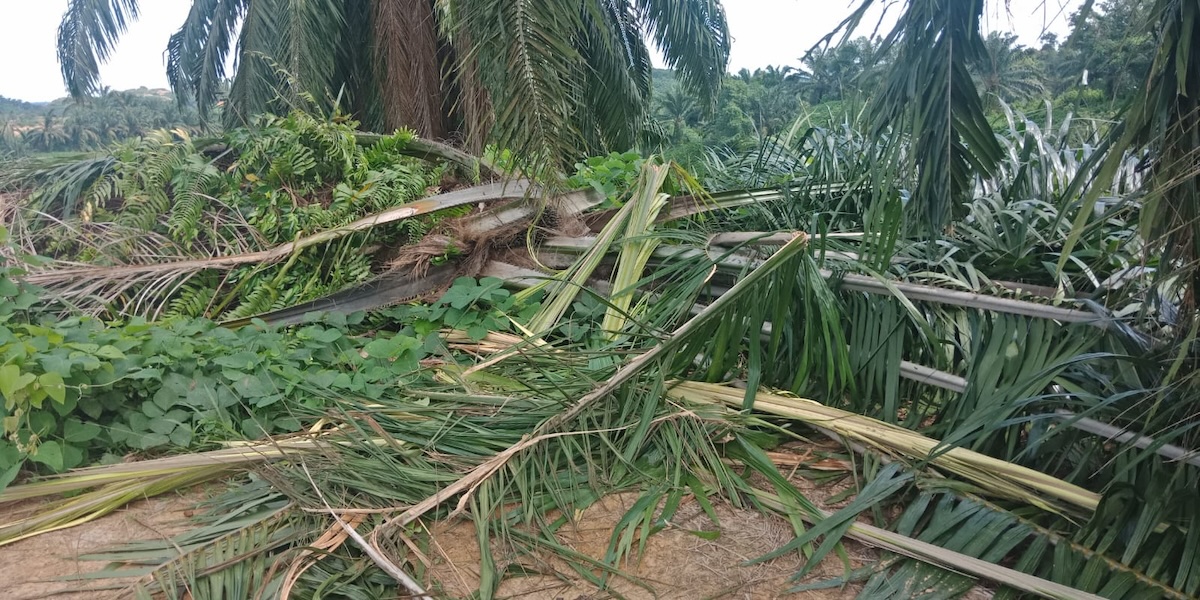How Conversations are Transforming Human-Elephant Relations
In the borderlands of Gunung Leuser National Park, where people and wild elephants coexist, a simple approach is making a significant impact. Grounded in tea, conversation, and mutual understanding, this strategy is helping farmers and conservationists work together to ease human-elephant conflict.
In these areas where people and elephants share the same land, conflicts have long been a challenge. Elephants often wander into nearby farms, searching for food. When this happens, they can cause serious damage to crops, which threatens the livelihoods of the local farmers. For many years, this led to tension between the villagers and the elephants, with both sides suffering losses. But now, a simple solution is making a big difference—socialising.
 Palm oil tree felled by elephants on PT Rapala bordering the Gunung Leuser National Park.
Palm oil tree felled by elephants on PT Rapala bordering the Gunung Leuser National Park.
Incidences like these give rise to retaliation by farmers leading to serious injury and even death for Critically Endangered Sumatran elephants.
The International Elephant Project (IEP) works with local conservation organisation Sumatera Hijau Lestari (SHL) to protect Sumatran elephants in the Leuser Ecosystem. In two villages, Bukit Mas and Halaban, most residents are farmers whose lands are shared by elephants. Up to 20 elephants at a time sometimes come out of the forest and damage the farmers’ crops, creating conflict between the villagers and the elephants which can lead to serious injury, and sometimes death, for both elephants and farmers. SHL is educating the villagers on forest boundaries and teaching them how to manage conflict with elephants in a peaceful and smart way.
The goal of the project is to restore the Sumatran elephant population and their habitat within 10 years. By reducing human-elephant conflict in Bukit Mas and Halaban, the project hopes to support new strategies for community-based elephant conservation.
An important part of this strategy is the simple act of having a conversation. It may seem unusual at first, but sitting down over a cup of tea, sharing stories, and building personal connections are turning out to be some of the most effective ways to ease conflict between farmers and elephants.
.jpg)
An SHL Ranger talking with a local farmer about a recent incidence of crop-raiding on his farm
These conversations are a means by which farmers can share their frustrations and learn about the elephants’ needs. Rangers from SHL explain that elephants aren’t being destructive on purpose—they’re just following ancient paths that now overlap with farms.
Through these conversations, trust is built. Farmers who once saw elephants as pests begin to see them as important parts of the ecosystem. At the same time, rangers better understand the farmers’ challenges and can adjust their strategies to fit both human and elephant needs.
This approach, based on empathy and understanding, is changing everything. It proves that the most powerful conservation tool isn’t a fence or a gadget—it’s a conversation.
